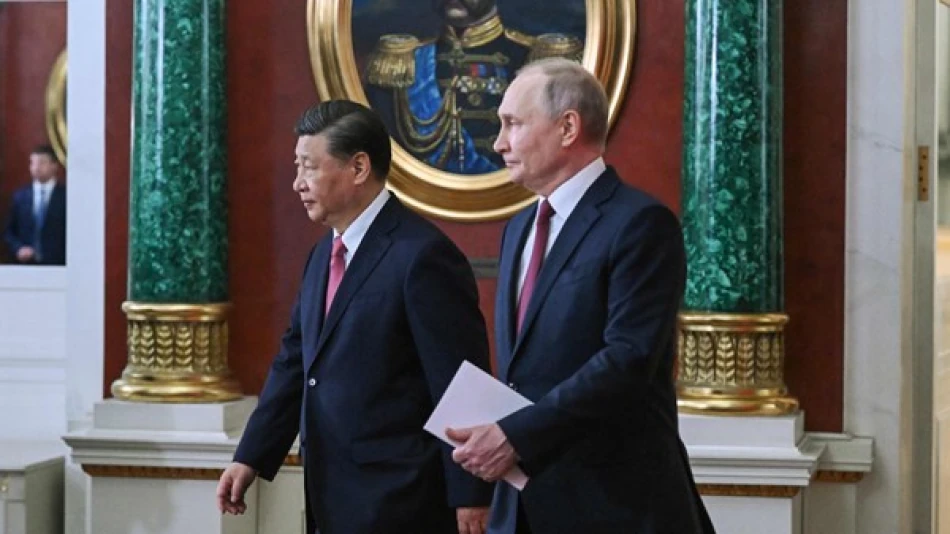
Putin to Visit China Next Week: Insights from the Latest Press Report
Putin's Four-Day China Visit Signals Deepening Moscow-Beijing Alliance Amid Global Tensions
Russian President Vladimir Putin will embark on a four-day state visit to China next week, featuring extensive bilateral negotiations that underscore the accelerating strategic partnership between the two powers. The visit, which includes participation in the Shanghai Cooperation Organization summit in Tianjin, comes as both nations seek to strengthen economic and political ties while navigating Western sanctions and regional security challenges.
Strategic Timing of High-Stakes Diplomacy
The announcement, reported by Russian journalist Pavel Zarubin from the "Moscow. Kremlin. Putin" program via Vesti newspaper's Telegram channel, highlights the priority both leaders place on their bilateral relationship. This marks another significant diplomatic engagement between Putin and Chinese leadership, building on previous meetings that have consistently emphasized their "no limits" partnership.
The four-day duration suggests an agenda extending far beyond ceremonial exchanges, likely encompassing energy deals, military cooperation, and coordination on global governance issues where both nations challenge Western-led institutions.
Shanghai Cooperation Organization: Platform for Alternative Global Order
Expanding Influence Beyond Traditional Allies
Putin's participation in the SCO summit in Tianjin represents more than bilateral diplomacy—it's a statement about alternative power structures. The Shanghai Cooperation Organization, founded in 2001, has evolved from a regional security bloc into a comprehensive platform for economic and political cooperation spanning Central Asia, South Asia, and beyond.
Recent SCO expansions, including Iran's full membership and growing interest from Middle Eastern and African nations, demonstrate how Russia and China are successfully building parallel institutions to Western-dominated forums like the G7 and NATO.
Economic Implications: Trade and Energy at the Forefront
Sanctions-Resistant Partnership
For investors and global markets, this visit likely signals further integration of Russian and Chinese economic systems. Since Western sanctions intensified following Russia's actions in Ukraine, bilateral trade has reached record levels, with China becoming Russia's largest trading partner and a crucial outlet for Russian energy exports.
The extensive negotiations planned during Putin's visit will probably address infrastructure projects, payment systems bypassing Western financial networks, and technology transfers that reduce both nations' dependence on Western suppliers.
Energy Security and Long-term Contracts
China's growing energy demands and Russia's need for reliable export markets create natural synergies. Previous Putin visits have yielded major pipeline deals and long-term supply agreements. This visit may produce similar announcements, particularly as China seeks to diversify its energy portfolio while Russia looks to redirect exports from European markets.
Geopolitical Ramifications
The timing and scope of this visit will be closely watched in Washington, Brussels, and other Western capitals. Each high-profile Russia-China meeting demonstrates the limitations of isolation strategies and the emergence of a multipolar world order where alternative partnerships can provide substantial economic and political leverage.
Unlike previous diplomatic eras where major powers competed primarily through proxy relationships, the current Russia-China partnership represents direct coordination between nuclear powers with significant global influence. This creates new dynamics for international relations, trade patterns, and regional security arrangements from Europe to the Pacific.
The four-day format suggests both leaders recognize the strategic importance of this moment—not just for bilateral relations, but for positioning their partnership as a cornerstone of the emerging global order they seek to shape.
Most Viewed News

 Layla Al Mansoori
Layla Al Mansoori






